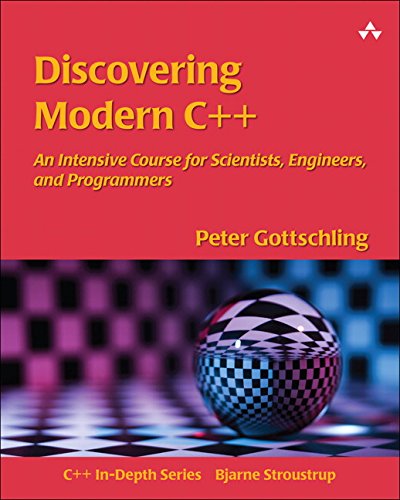

Most ebook files are in PDF format, so you can easily read them using various software such as Foxit Reader or directly on the Google Chrome browser.
Some ebook files are released by publishers in other formats such as .awz, .mobi, .epub, .fb2, etc. You may need to install specific software to read these formats on mobile/PC, such as Calibre.
Please read the tutorial at this link: https://ebookbell.com/faq
We offer FREE conversion to the popular formats you request; however, this may take some time. Therefore, right after payment, please email us, and we will try to provide the service as quickly as possible.
For some exceptional file formats or broken links (if any), please refrain from opening any disputes. Instead, email us first, and we will try to assist within a maximum of 6 hours.
EbookBell Team

0.0
0 reviewsAs scientific and engineering projects grow larger and more complex, it is increasingly likely that those projects will be written in C++. With embedded hardware growing more powerful, much of its software is moving to C++, too. Mastering C++ gives you strong skills for programming at nearly every level, from “close to the hardware” to the highest-level abstractions. In short, C++ is a language that scientific and technical practitioners need to know.
Peter Gottschling’s Discovering Modern C++ is an intensive introduction that guides you smoothly to sophisticated approaches based on advanced features. Gottschling introduces key concepts using examples from many technical problem domains, drawing on his extensive experience training professionals and teaching C++ to students of physics, math, and engineering.
This book is designed to help you get started rapidly and then master increasingly robust features, from lambdas to expression templates. You’ll also learn how to take advantage of the powerful libraries available to C++ programmers: both the Standard Template Library (STL) and scientific libraries for arithmetic, linear algebra, differential equations, and graphs.
Throughout, Gottschling demonstrates how to write clear and expressive software using object orientation, generics, metaprogramming, and procedural techniques. By the time you’re finished, you’ll have mastered all the abstractions you need to write C++ programs with exceptional quality and performance.